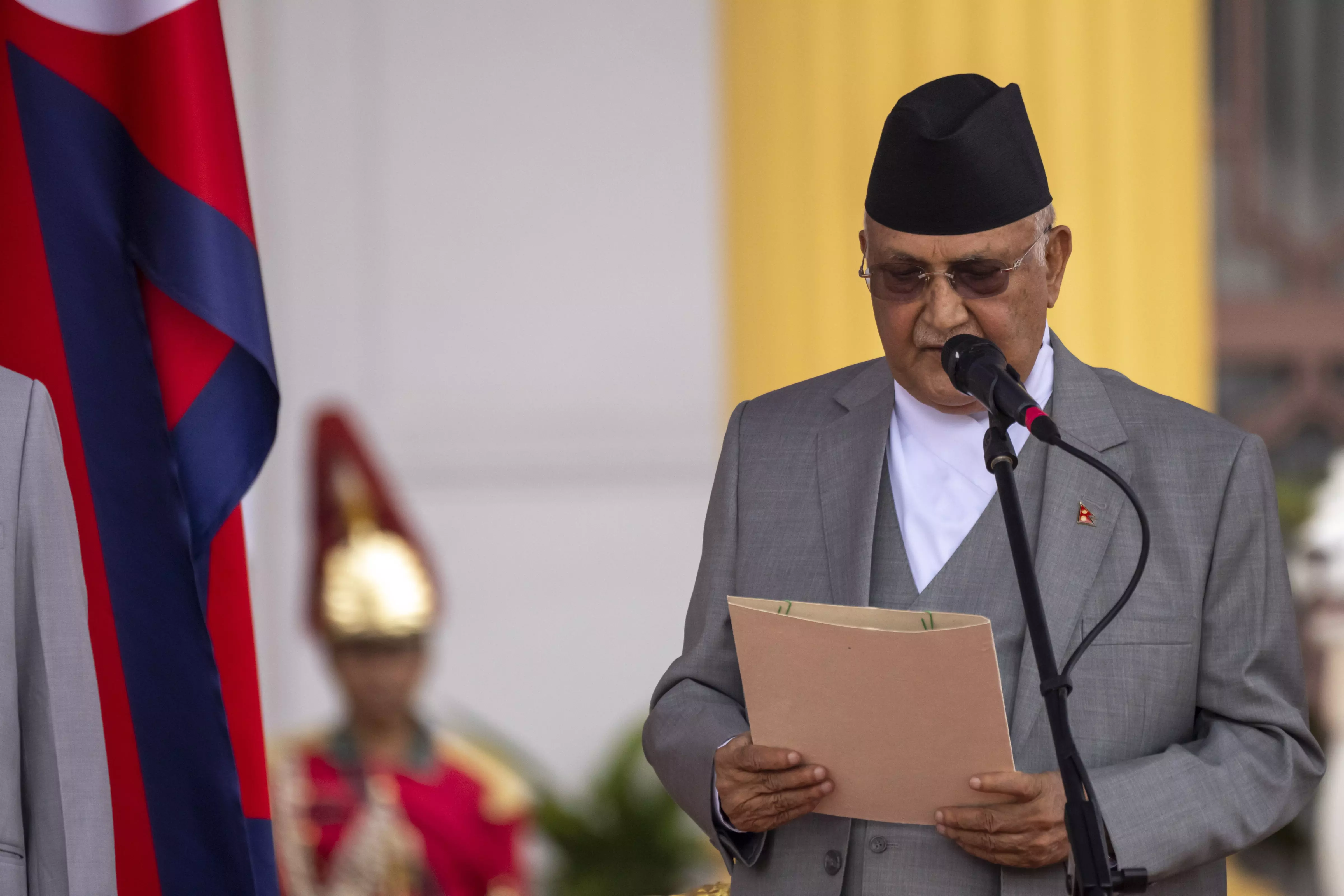
Why India-Nepal ties are headed for another spell of turbulent times
With Oli, who has shown a pronounced tilt towards Beijing, as PM, New Delhi will understandably be anxious about future trajectory of ties with Kathmandu

India-Nepal’s ties could once again be headed for turbulent times now that KP Sharma Oli is the Prime Minister of the strategically located Himalayan nation for a fourth time.
That he would win the vote of confidence with a two-thirds majority in Nepal’s Parliament on Sunday (July 21) was a foregone conclusion, given the numbers his party CPN-UML enjoys in the Lower House along with coalition partner Nepali Congress. For India, dealing with the wily politician will present a diplomatic challenge due to its trust deficit with the Communist leader.
The days when India enjoyed unchallenged sway, even dominance, in Nepal are long gone with China having made deep inroads into the country. Beijing has assiduously wooed smaller nations in India’s neighbourhood with promises of financial assistance and investments in massive infrastructure projects.
China woos Nepal
Worryingly, China has even made inroads into the polity of some of these countries. Nepal is a case in point, with politicians of all hues, not just the Communists, eager to build strong ties with Beijing. Much to India’s dismay, China has also managed to get Nepal on board its Belt and Road Initiative (BRI), though projects under its rubric have failed to take-off there. Indeed, China’s widening arc of influence in the Himalayan nation, as also elsewhere in India’s neighbourhood, has become a big concern. This Chinese expansionism has made India’s task all the more daunting.
With Oli having shown a pronounced tilt towards Beijing as PM, New Delhi will understandably be anxious about the future trajectory of its relations with Kathmandu. Bilateral ties had soured under Oli’s premiership as he used nationalistic rhetoric to build an anti-India sentiment, while cosying up to China.
While his party leaders in recent days have conceded Nepal cannot make economic progress by following an anti-India policy, New Delhi knows well that under Oli, the tide can turn against it any time. Whether PM Oli, now comfortably ensconced in Singha Durbar, will adhere to such pro-India pronouncements remains to be seen. For, his past actions as PM have proven he is willing to jeopardise bilateral relations with a historically close neighbour to serve his own political ends.
Deuba only consolation
The only consolation is that the Sher Bahadur Deuba-led Nepali Congress, which has traditionally been pro-India, is part of the national consensus government. Hopefully, the Nepali Congress will bring some temperance in Oli’s engagement with New Delhi.
A huge opportunity presents itself before the Oli-Deuba coalition to work for the development of their impoverished nation. They have promised good governance, economic progress, political stability and amendments to the Constitution in the seven point power-sharing deal they have inked. The proposed constitutional amendments, however, threaten to open a Pandora’s Box for Nepal, which had promulgated a new Constitution in 2015, allowing the country to transition from a monarch to a federal democratic republic.
Under the deal, Oli and Deuba will also be sharing the PM’s post. Oli will lead the government for the first two years, followed by Deuba until elections in late 2027. However, given the ever fluid political landscape of Nepal, where senior party leaders are driven by sheer opportunism and the desire to grab the PM’s chair, the question really is whether the alliance will last. Or, even provide the political stability that has eluded Nepal for so many years.
Will Oli keep his word?
Even though Deuba has got an assurance in writing he will be the PM, it’s doubtful whether Oli will allow Deuba to actually assume the post given his past track record. He earlier denied the post to his then coalition partner, Pushpa Kamal Dahal ‘Prachanda’ of the Communist Party of Nepal (Maoist Centre) despite a similar power-sharing agreement with him.
Having had a prickly relationship with Oli, New Delhi will have to tread carefully to ensure Kathmandu is not alienated any further. India also needs to dispel the widespread perception in Nepal about being dismissive about issues raised by its smaller neighbour and trampling on its sovereignty. Oli, in the past as PM, has used this effectively in Nepal’s boundary dispute on Kalapani, Lipulekh and Limpiyadhura with India.
Time to tread with caution
By failing to respond to Kathmandu’s request for a foreign secretary-level meet to discuss the simmering dispute, New Delhi allowed Oli to beat the drum of nationalism and sovereignty. He then went ahead to get his country’s map redrawn in May 2020 to show the disputed territories as part of Nepal.
It was again Oli who used India’s ill-advised unofficial blockade imposed on the movement of goods to Nepal to whip up sentiments. The blockade, which caused ordinary Nepalese much hardship, saw Oli turn to China for alternate trade and transit routes for his landlocked country.
India, for sure, needs to ensure it does not come across as an overbearing neighbour. Doing so is detrimental to its own strategic interests, given China’s aggressive attempts to bring Nepal firmly under its sphere of influence.

